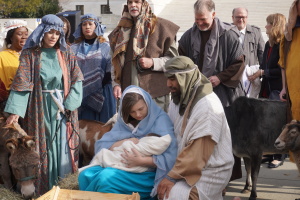4 interesting facts about Easter: Disputed origins, different dates, religious significance of the egg
A disputed name origin

The origins of the name of the holiday have been the subject of much debate, with some arguing that the name Easter has pagan origins while others reject this as unfounded.
The Venerable Bede, a widely-respected historian from the Medieval era, claimed in an eighth century work that the word “Easter” came from “Eostre” or “Eostrae,” which was purportedly the Anglo-Saxon goddess of spring and fertility.
However, according to Britannica, many scholars believe it was derived from “the Christian designation of Easter week as in albis, a Latin phrase that was understood as the plural of alba (‘dawn’) and became eostarum in Old High German, the precursor of the modern German and English term.”
In the 19th century, Presbyterian theologian Alexander Hislop wrote in the book The Two Babylons that Easter was derived from the Babylonian goddess Astarte, which influenced the Anglo-Saxon deity Eostre.
The apologetics group Answers in Genesis, which usually focuses on the Creation-evolution debate, critiqued the claims of Hislop and others influenced by his work.
“Hislop’s logic becomes incomprehensible in places, and he made fundamental errors demonstrating his thinking to be false,” stated AiG in a 2011 entry.
“For instance, he argued on a phonetic basis that Eostre from Saxony must be the same as Astarte, Ishtar, and Ashtoreth. This is a leap to consider their relationships based on the sound of the names alone.”
Due in part to concerns over the possible pagan origins of the name, many churches in the United States refer to Easter as “Resurrection Sunday” instead.




























